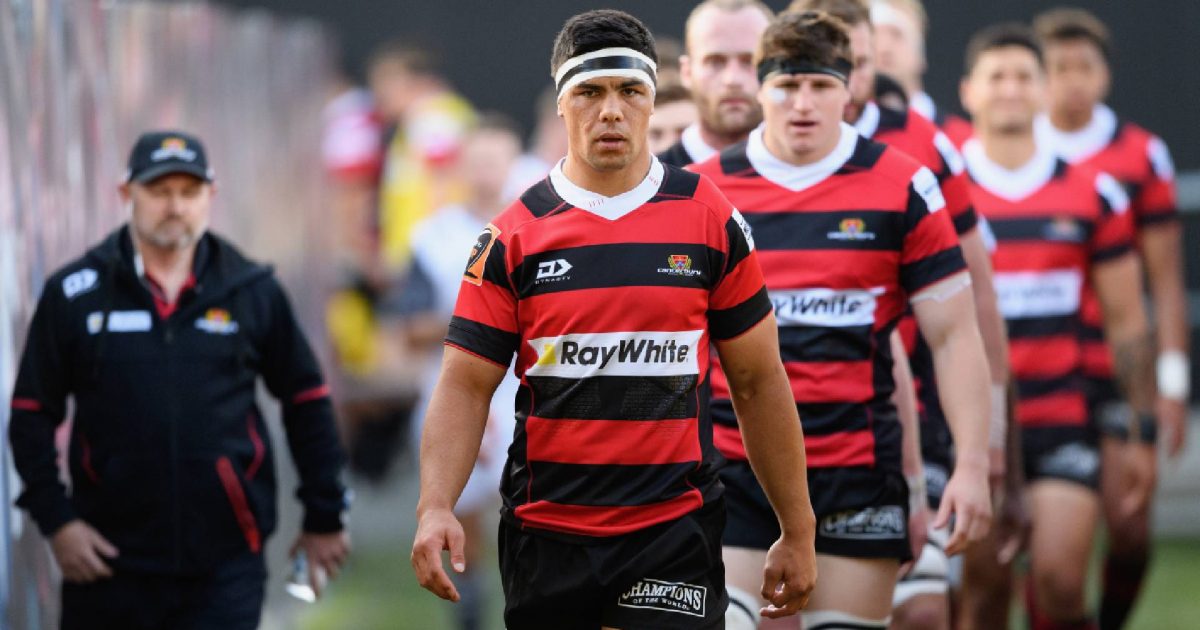Canterbury thumped by Bay of Plenty as 14-time champions risk missing play-offs for first time since 2003

Perennial Mitre 10 Cup juggernauts Canterbury have been humbled 44-8 by Bay of Plenty in a result that leaves the 14-time provincial champions facing the prospect of missing the play-offs for the first time in 17 years.
In sunny Saturday afternoon conditions in Tauranga, the Steamers ran amuck to hand the visitors their fourth – and biggest – loss of the season, leaving them one point astray of fourth-placed Wellington, who sit in the last semi-final spot.
However, the Lions have a game in hand still to play this weekend against a lowly Counties Manukau outfit in a fixture they are heavily favoured to emerge victorious from.
Should that be the case, and the likes of Waikato and Tasman win their respective matches, of which they are expected to, then the red-and-blacks could find themselves as far as six points off a qualification spot.
With three rounds left to play, Canterbury have a difficult run of games to close out the regular season against the Championship-leading Otago, reigning Mitre 10 Cup champions Tasman and top-of-the-table Auckland.
Given the credentials and winning records of those three sides, as well as Canterbury’s losing record and uninspiring performance against Bay of Plenty, it wouldn’t be out of the question to see them miss the semi-finals for the first time since 2003.
For a province that has only missed the play-offs three times in 26 years and has won nine of the past 12 titles, that would be a significant blow, especially considering the depth of talent evident within Mark Brown and Reuben Thorne’s side.
Even more concerning is the lingering possibility of relegation into the Mitre 10 Cup Championship, something that would have been unthinkable prior to the season starting.
It is a concept that is inching closer to reality, though, as they sit six points astray from North Harbour, the side currently occupying last place in the Mitre 10 Cup Premiership.
A win for them in their Battle of the Bridge derby clash with Auckland on Saturday evening would bring that gap to just one-to-two points, leaving Canterbury in a precarious position as they head into the business end of their campaign.
In order to survive relegation and qualify for the Premiership semi-finals, much improvement will be needed when they return to Christchurch to host Otago next Friday given how freely Bay of Plenty were able to run in six tries to one.
An ex-All Black has leapt to Ian Foster's defence after the New Zealand boss fell under heavy criticism in the opening stages of his tenure at the helm of the national side.https://t.co/agabnn7jJj
— RugbyPass (@RugbyPass) October 24, 2020
Steamers captain Chase Tiatia, starting in the midfield, opened the scoring by finishing off a scintillating set piece move inside the first 10 minutes, before the two sides traded penalties through the boots of Kaleb Trask and Fergus Burke.
Tiatia doubled his tally about 10 minutes after his first try, outpacing All Blacks Sevens star Andrew Knewstubb after charging a clearing kick down to slide over in the corner.
A yellow card to new Blues signing Sam Darry didn’t help Canterbury’s cause, and things went from bad to worse for the away side as Bay of Plenty were then awarded a penalty try just moments later after an offside player killed off a certain try-scoring chance.
Up 22-3 at half-time, Bay of Plenty continued their onslaught midway through the second half when All Blacks Sevens veteran Joe Webber capitalised on some champagne rugby to dot down out wide.
Another yellow card was dished out to Canterbury, with hooker Nathan Vella sent to the sin bin as a result of his side’s high penalty count.
His absence added to Canterbury’s woes, as did Trask, who was on hand to finish off a special backline move that saw Tiatia and Webber combine via a cross-kick chip, which the latter flicked back in-field into the hands of the young Chiefs playmaker.
All Blacks Sevens skipper Scott Curry, coming off the bench as a reserve lock, finished off the demolition job as he charged onto the ball to score under the posts after Blues flyer Emoni Narawa took full advantage of a misjudged catch from a midfield bomb by Canterbury replacement first-five Brett Cameron.
With the scoreline reading 44-3, the Cantabrians earned themselves a consolation try in the final few minutes through No. 8 Cullen Grace, who was released from the All Blacks camp to play in the match.
Canterbury will be without his services for the remainder of the competition as he departs for Australia to compete in the Tri Nations on Sunday, though, leaving Thorne and Brown with a tricky job to overturn such a hefty defeat in just six days’ time.































































































